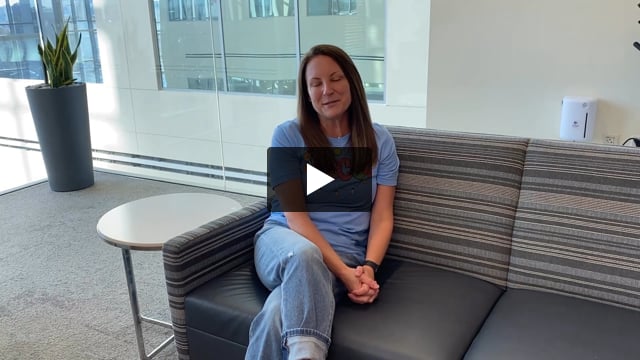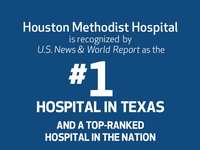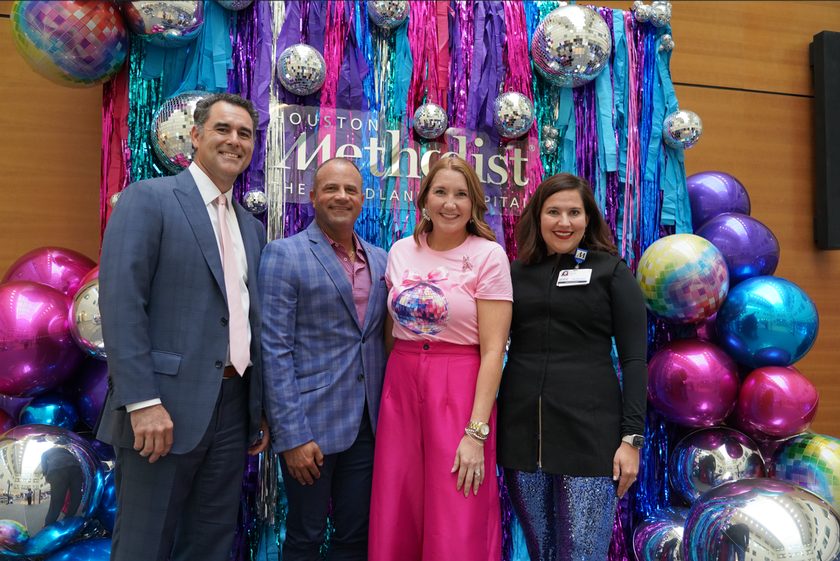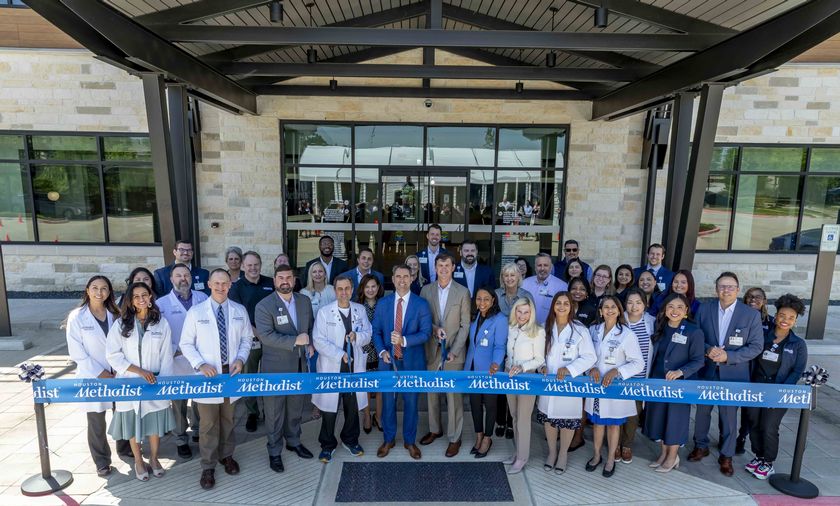- Sections :
- Crime & Public Safety
- Restaurants & Food
- Sports
- More
Houston Methodist Hospital Sustainability Program is making strides in saving money, waste, and the planet
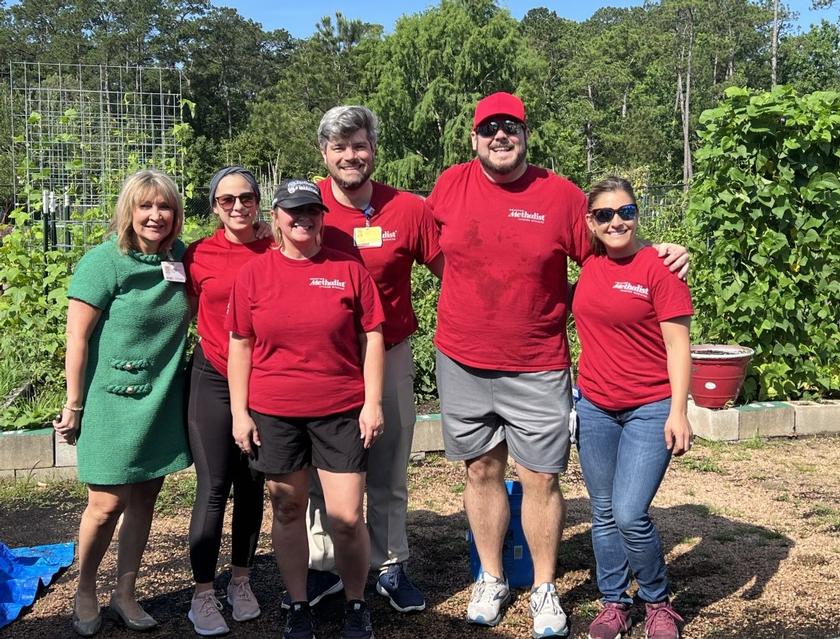
THE WOODLANDS, TX – Houston Methodist The Woodlands Hospital is part of a forward-looking, resource-saving initiative that has already had a profound impact in just a year, and it’s just getting started.
Thanks to the work from the HMTW Sustainability Committee, inspired by the new Houston Methodist system-wide office of sustainability, the hospital is helping to feed the Montgomery County – due to its connection with Interfaith of The Woodlands and their Veggie Village – as well as take steps to significantly reduce waste and encourage recycling.
Woodlands Online recently sat down with Jason Fischer, the Houston Methodist director of sustainability, and Paul Stege, director of HMTW’s environmental services and chair of the sustainability committee, in an exclusive interview to discuss the history, current status, and future of the hospital system’s sustainability, composting, and recycling efforts.
“We were having problems finding proper recycling facilities for plastics, resulting in a large backlog of plastics at the hospital,” said Fischer. He discussed with Stege how to successfully resolve the plastics-recycling issue; afterwards, they wondered what else they could do to make the hospital more sustainable and the topic of composting arose.
“It’s jaw-dropping how much we as a society aren’t doing when it comes to composting,” said Stege. Composting is the natural process of taking food waste, leaves, and other organic matter and converting it to fertilizer that is rich in nutrients due to the natural decomposition of the matter.
The newly formed sustainability committee partnered with local business Moonshot Compost and began to participate in a composting program in late 2022, and has collected more than 90,000 lbs of food waste from its own food services and diverted it from the landfill so far. This is the equivalent of planting more than 4,600 trees, or an excess of 69,000 miles “undriven” by a car, with a total of more than 61,000 lbs of CO2 saved since the program began nine months ago.
“We were the first hospital in the season that started last July, and we’re the first hospital in the Houston area to take part in such an initiative,” said Fischer.
Besides composting on a corporate level, the sustainability initiative also provides for home composting services for hospital employees. “With 2,000 employees and 293 licensed beds, that’s a lot,” said Fischer. As for what is generated by the hospital, it is calculated that five 55-gallon drums are filled with food waste three times a week, at 150 lbs per drum.
“We all benefit from composting; it’s good for business and it’s good for the environment,” said Fischer. “This is countless tons of food that isn’t going to landfills. As a result, landfills aren’t as filled, and there’s less burning of methane as a result.”
One local beneficiary of this program is Interfaith of The Woodlands’ Veggie Village, a series of community donation gardens where people work and learn together while providing fresh organic produce to the Interfaith Food Pantry and Senior Living Complexes. The gardens are located at the Alden Bridge Sports Park and Wendtwoods Park (in the Village of Creekside) in partnership with The Woodlands Township and many community volunteers.
“Interfaith comes into the picture because unbeknownst to us they were previously purchasing compost from the facilities we were sending our food waste. We are now working with Interfaith The Woodlands to provide compost that they then use for their Veggie Villages to feed the community. Our team also recently volunteered for a harvest at one of the Veggie Village locations, and the next one takes place on September 9 for anyone who wants to join,” said Wes Hamilton. senior communications specialist for Houston Methodist The Woodlands Hospital.
Fischer discussed how the entire sustainability committee, composting program, and future endeavors all grew out of the hospital’s “I-CARE” program, the acronym standing for Integrity, Compassion, Accountability, Respect, and Excellence.
“What started as basically the two of us is now a thriving EVS department with 138 employees, where we cover the aspects of linen, the environmental housekeeping, and transportation,” said Fischer. “We get to enjoy the total support of everyone, especially Debra [Sukin, Ph.D., Regional Senior Vice President and Chief Executive Officer of Houston Methodist The Woodlands Hospital].”
As for projects that help the environment beyond food waste, both Fischer and Stege are excited at the scope and scale of what the hospital has invested in. “Beyond installing more recycling receptacles, we are also educating employees about what can/cannot be included in the recycling bins. Additionally, our waste management partner recently acquired the ability to process rigid plastics. We are also looking at recycling nonrigid plastics with our waste management vendor and the Alliance to End Plastic Waste.”
Beyond plastic recycling, the sustainability department also partners with a document destruction service that can process both confidential documents and printed paper waste. Houston Methodist partners with Medline Industries to reprocess single-use medical devices such as robotic surgical arms, EP catheter devices, blood pressure cuffs, and more. Additionally, rescued medical supplies – which include expired, unusable or contaminated supplies – can be used overseas without impacting patient safety and quality, and many of these items are given to medical mission teams to provide quality medical care to people in need in other countries.
Even things as innocuous as cups and plates are shifting from Styrofoam to biodegradable materials. Interested parties can keep tabs on the impact of the sustainability office’s efforts by accessing the hospital’s Diversion Dashboard at https://houstonmethodist.moonshotcompost.com/back.


